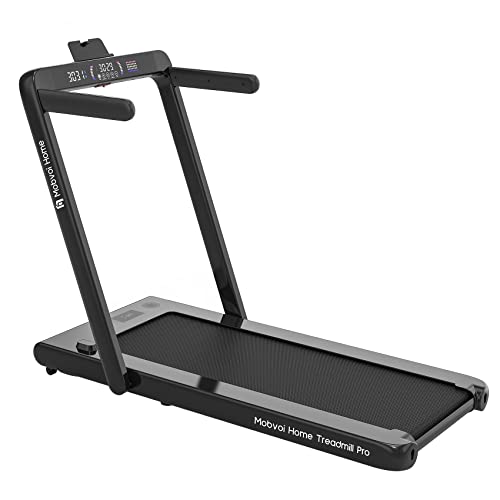Treadmills: A Comprehensive Guide to Understanding Their Functionality, Benefits, and Appropriate Selection
Intro
Treadmills have ended up being a staple in modern physical fitness regimens, both in homes and gyms worldwide. They offer a hassle-free and efficient way to keep cardiovascular health, increase endurance, and assist in weight management. This post explores the different types of treadmills, their advantages, functions to think about when buying, and some FAQs to direct users in making informed decisions.
Kinds of Treadmills
When it pertains to picking a treadmill, it is vital to understand the different types readily available in the market. Here are the primary classifications:
1. Manual Treadmills
- System: These treadmills have an easy design and rely on the user's efforts to move the belt.
- Pros: More economical, quieter operation, no electricity needed.
- Cons: Limited features, might not offer the same series of workout strength.
2. Motorized Treadmills
- System: Powered by a motor that drives the belt, enabling users to stroll or perform at a set speed.
- Pros: Greater variety of speeds and inclines, geared up with various features such as heart rate displays and exercise programs.
- Cons: More pricey and may need more maintenance.
3. Folding Treadmills
- Mechanism: Designed for those with minimal space, these treadmills can be folded for simple storage.
- Pros: Space-saving, typically motorized, flexible functions.
- Cons: May be less durable than non-folding designs.
4. Industrial Treadmills
- System: High-quality machines designed for usage in fitness centers and gym.
- Pros: Built to endure heavy usage, advanced functions, often include service warranties.
- Cons: Pricey and not ideal for home usage due to size.
5. Curved Treadmills
- System: A distinct design that allows users to move the belt using their own energy.
- Pros: Offers a more natural running experience, promotes much better running kind.
- Cons: More expensive and can be noisier.
| Treadmill Type | Pros | Cons |
|---|---|---|
| Manual | Inexpensive, no electrical energy required | Restricted features |
| Motorized | Variety of speeds, advanced features | Maintenance needed |
| Folding | Space-saving, frequently motorized | May lack durability |
| Business | Built to last, professional-grade functions | Pricey |
| Curved | Natural running experience, promotes great kind | Greater cost |
Advantages of Using Treadmills
Treadmills use various benefits that can contribute to one's total fitness objectives. Some of these advantages include:
- Convenient Workouts: Treadmills permit users to exercise indoors regardless of climate condition.
- Cardiovascular Health: Regular use can enhance heart health by increasing endurance and promoting healthy circulation.
- Weight Management: Effective for burning calories, which aids in weight loss and management.
- Adjustable Workouts: Users can control speed, incline, and period to create tailored workout experiences.
- Safety: Treadmills offer a predictable surface area, reducing the threat of falls compared to outdoor running.
- Multifunctional: Many treadmills come with features like heart rate monitors, exercise programs, and even home entertainment systems.
Selecting the Right Treadmill
When choosing a treadmill, possible buyers ought to think about a number of key elements:
Features to Consider:
- Motor Power: Typically measured in horse power (HP), a motor strength of at least 2.5 HP is suggested for major runners.
- Belt Size: A longer and wider belt accommodates different stride lengths, offering convenience throughout workouts.
- Slope Settings: Adjustable slope features simulate outside hill running and can increase exercise intensity.
- Weight Capacity: Ensure the treadmill can support the user's weight for security and durability.
- Console Features: Look for easy to use control panels, exercise programs, and Bluetooth compatibility for streaming music or other functions.
Spending plan Considerations
- Under ₤ 500: Entry-level manual treadmills ideal for casual walkers.
- ₤ 500 - ₤ 1,500: Mid-range motorized treadmills that offer more functions and much better toughness.
- ₤ 1,500 - ₤ 3,000: High-end models with advanced innovation, larger motors, and longer warranties.
- Over ₤ 3,000: Commercial-grade treadmills ideal for frequent usage in health clubs or training facilities.
Frequently Asked Questions (FAQs)
1. How frequently should I utilize a treadmill?
It is suggested to utilize a treadmill a minimum of three to five times a week, incorporating different strength levels for best results.
2. Can I reduce weight by utilizing a treadmill?
Yes, consistent use of a treadmill can add to weight reduction, particularly when combined with a well balanced diet plan and strength training.
3. What is the very best speed to stroll on a treadmill for beginners?
A speed of 3 to 4 miles per hour is an ideal range for newbies. Home Treadmill UK to begin sluggish and slowly increase speed as comfort and stamina enhance.
4. Do I require to utilize a treadmill if I already run outdoors?
Utilizing a treadmill can offer fringe benefits, such as controlled environments and differed workouts (slope, intervals) that are not constantly possible outdoors.
5. How do I maintain my treadmill?
Routine maintenance includes lubricating the belt, cleaning up the deck and console, and examining the motor for optimum efficiency.
Treadmills are important tools for those looking to enhance their physical fitness levels in a regulated and convenient manner. With different types offered, understanding their features and benefits is vital for making an informed purchase. By considering personal exercise requirements, space schedule, and budget plan restrictions, people can find the most appropriate treadmill that fits their lifestyle. Integrating treadmill exercises into a balanced physical fitness routine can result in enhanced health results and a satisfying workout experience.

